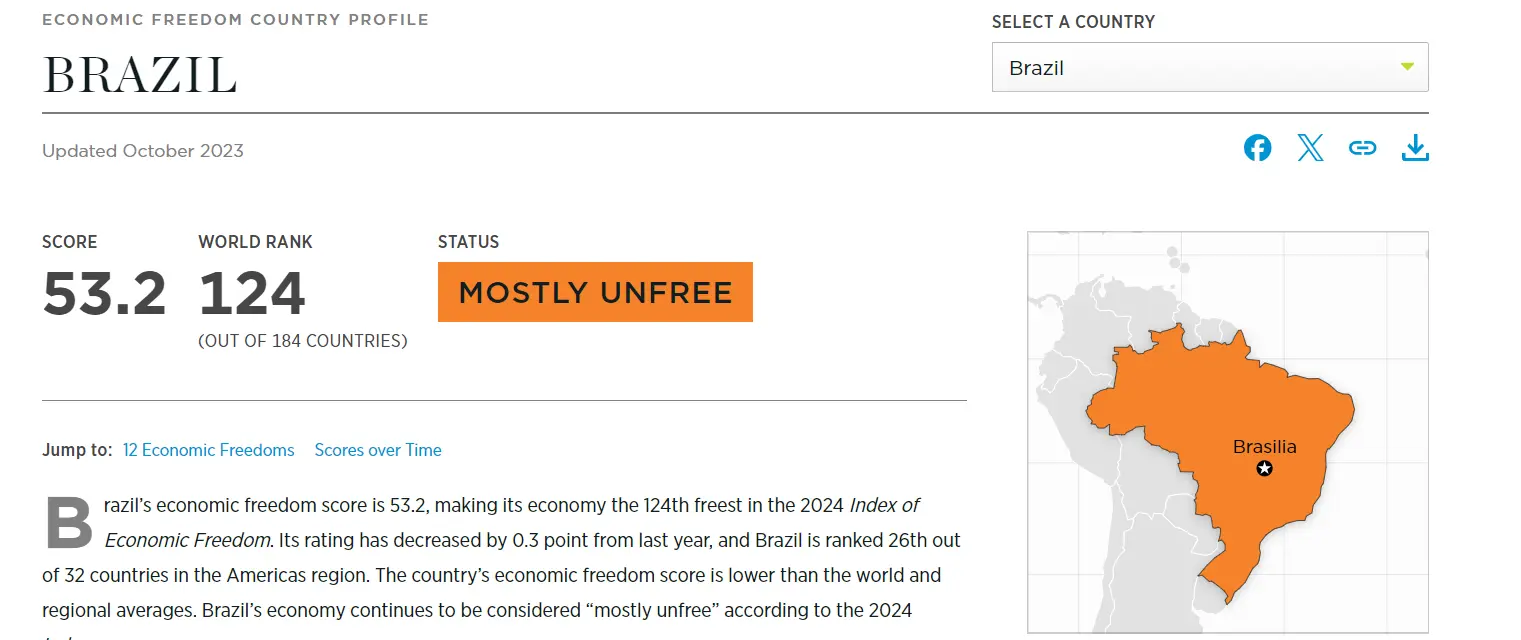The 2024 Heritage Foundation’s Index reveals Brazil ranks 124th among 184 nations with a 53.2 score, marking it as “mostly unfree” economically.
The country’s economic freedom score is lower than the world and regional averages.
Positioned just above Angola and India, yet trailing behind Nigeria and Russia, the country faces hurdles in enhancing its economic landscape.
This situation calls attention to the need for comprehensive reforms across various sectors to bolster Brazil’s economic freedom.
The Index employs a detailed analysis framework, assessing economic liberty through twelve factors divided into four main categories:
- Rule of Law,
- Government Size,
- Regulatory Efficiency, and
- Open Markets.

These elements collectively influence a nation’s economic health and its prospects for growth and innovation.
Stronger foundations of economic freedom remain critical to ensuring a greater economic future.
Brazil’s corruption and property rights scores are relatively low, and its judicial system remains vulnerable to political influence.
The state’s presence in the economy remains considerable, undercutting development of a more vibrant private sector.
Despite some progress, organizing new investment and production remains a cumbersome and bureaucratic process.
Launching or closing a business is both costly and time-consuming. Stifling labor regulations continue to undermine employment and productivity growth.
Brazil’s current standing points to specific areas needing improvement, particularly in government integrity and fiscal responsibility.
Globally, nations like Ireland, Singapore, Switzerland, and Taiwan achieve scores over 80, showcasing their economic freedom.
These countries exemplify the benefits of strong property rights, minimal government interference, efficient regulations, and open markets conducive to trade and investment.
Venezuela, Cuba, and North Korea rank low in terms of economic freedom.
Tight grip of state control
The tight grip of state control over their economies demonstrates the negative impacts of limiting market access and failing to protect property rights.
Brazil’s improvement strategy calls for significant policy changes.
These changes aim to enhance government efficiency, reduce national debt, streamline regulations, and open markets wider.
By adopting these reforms, Brazil could significantly improve its global economic freedom ranking.
Moreover, such progress promises to spur economic growth and foster development across the nation.

